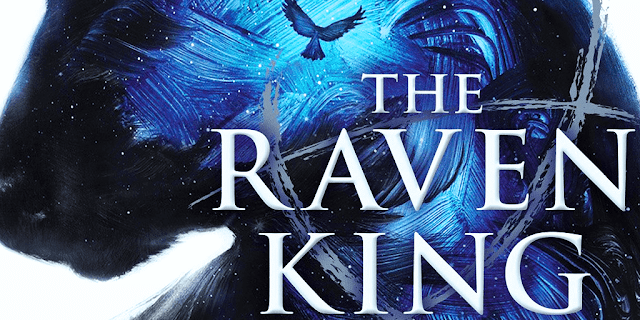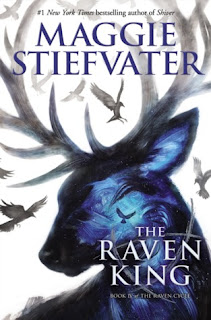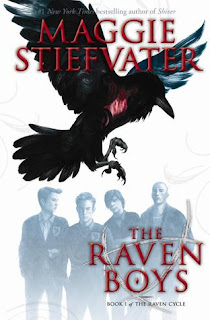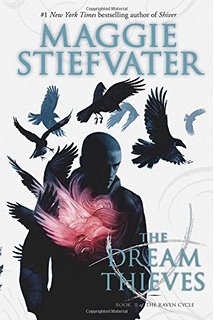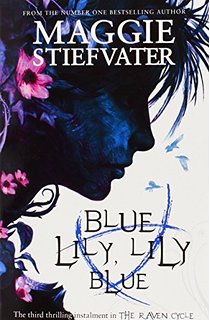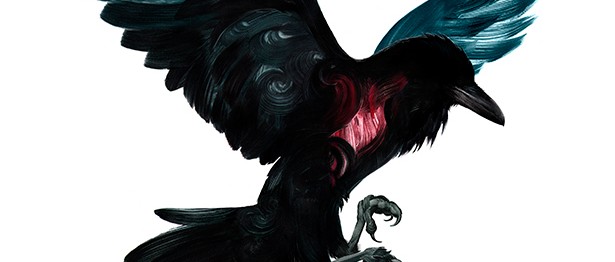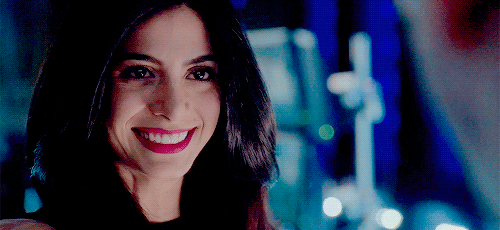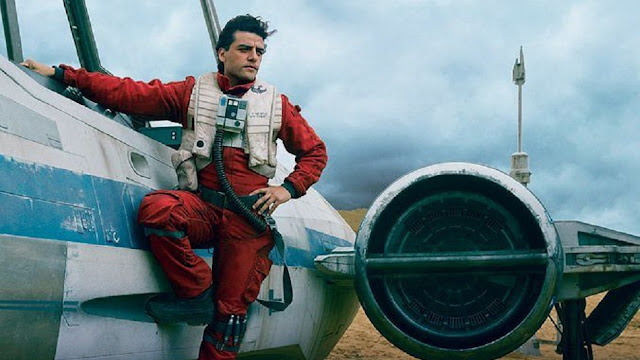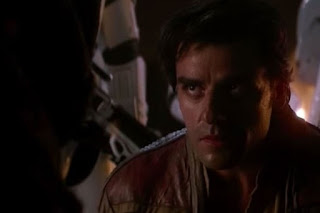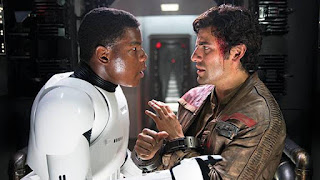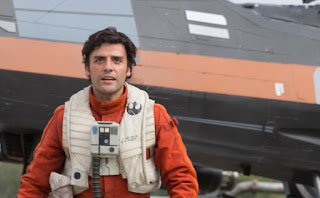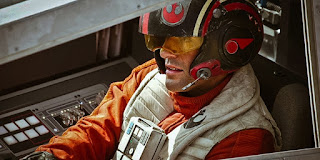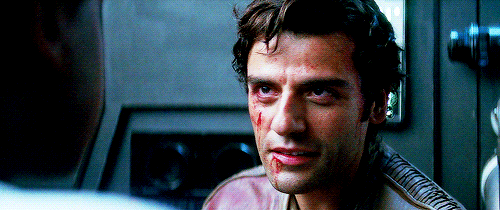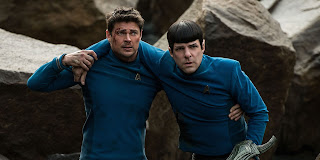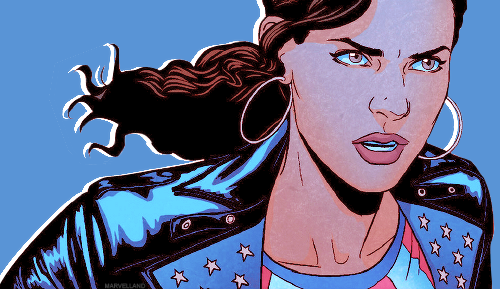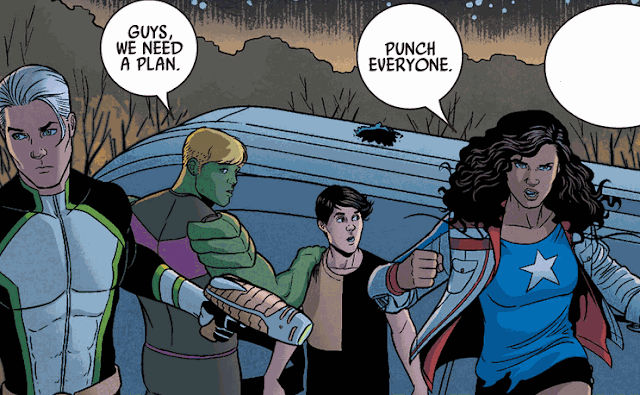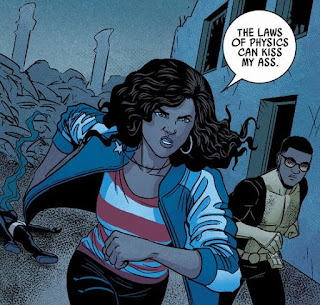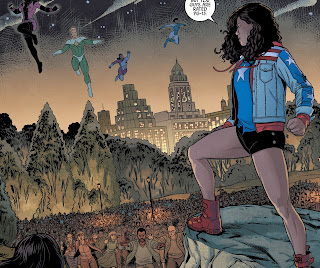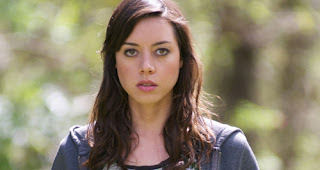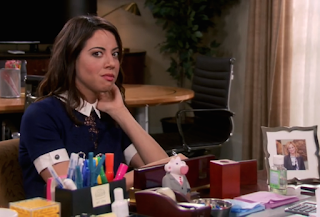September 2, 2016, 9:00 am
Well, it has been a pretty dang full just-under-two-months since I last talked to all of you! I went to Iceland (amazing), started my new job (satisfying), and began looking for apartments that don't involve living with my parents (that one was just okay - apartment hunting is hard).
At any rate, I've been continuously watching and reading and consuming media during all this time, so now that we're back, I have lots to say, don't you worry. There's stuff about Suicide Squad and Ghostbusters and Star Trek Beyond, sure, but there's also some little surprises in here too, so I think you're all going to like what comes next.
Just a few housekeeping things to explain before we return to our regularly scheduled ruining of everything you love:
The format is going to change. Instead of five posts a week, I'm going to be pulling back to three, and they're not going to fit as neatly into column categories as they have in the past. While I will stick to my commitment to write five Masculinity Mondays and Strong Female Character Fridays for Hispanic-Latino Heritage Month and Native American Heritage Month, the rest of the time we're going to go with a looser structure and articles more centered around big ideas. Good? Good.
Second, we're probably not going to do any more recaps, at least not for a while. Why? Because recaps are actually more time consuming than any other writing I do, and frankly they're not very pleasant to write. Sure, lots of people love them, but they're frustrating and hard and ultimately I don't think I end up saying much of value in them. So no more recaps, at least for now.
Third, the blog is coming up on it's five year anniversary! I know! I can't believe it either. On the other hand, though, I really can.
We'll be doing some fun stuff to celebrate as well as revisiting some of our most popular (and frequently inexplicably popular) old posts. So stay tuned!
That's it for now, just letting you know that we are BACK and to stay tuned for Monday. I've missed you all like Patrick Bateman missed Blockbuster.
![]() |
| Yeah, that's it. I've been returning videotapes for two months. |
↧
September 5, 2016, 9:00 am
It shouldn't come as any surprise to all of you that I didn't particularly care for Suicide Squad. In a summer of divisive movies, this one has been up there with Ghostbusters in its ability to tear the nerd community apart. On the one hand, lots of diehard DC fans clamoring for a movie about their favorite characters who aren't Batman or Superman, and on the other hand, lots of offended moviegoers who want to know what the hell they just paid fourteen dollars to see.
There are a lot of really problematic things in this movie that deserve criticism, but I can see why the DC fans like it. It's a lot more fun than anything else the DCU has put out lately, and it's refreshing to see a film set in that universe that isn't just the same two origin stories rehashed over and over. I get it. I don't like it, but I get it.
Alternately, though, while I see all the rightly criticized problems with representation in this film, that's not what bothered me most about it. I want Suicide Squad to suck because it's misogynistic, plays into all these racist stereotypes, and has the emotional depth of your average pigeon, but that's not why I dislike it. I dislike it because it's just plain not a good movie. Like, at all.
This film is bad not because of the content but because there is literally no way it could have been set up the way it was and been good. At the end of the day, Suicide Squad isn't bad because of the tired cliches, the aggressive stylistic choices, or even the lukewarm leftover villain, but because it doesn't know how movies work.
Look, I don't want to play into the whole Marvel vs. DC thing going on right now, but the easiest analogue for this movie is Avengers.
Like Suicide Squad, Avengers is a movie where the imposing, African-American, vaguely governmental badass in charge brings together a bunch of anti-social superpowered weirdos and demands that they save the world. At first the weirdos refuse and fight amongst themselves, but ultimately they do end up saving the world with the power of friendship, punching, and headshots. That's the same premise for both movies. The difference of course being that in Avengers these are the good guys and in Suicide Squad they're aggressively not.
That's not the reason why Avengers works and Suicide Squad doesn't, though. In fact, that comparison actually makes Suicide Squad sound a lot cooler than it is, like a dark mirror of Avengers. The same movie only they're all supervillains and if they make one wrong move, female Nick Fury will blow their heads off? Kind of great, when you think about it.
So the reason why Suicide Squad failed where Avengers succeeded isn't the basic concept. It mostly failed because it didn't set up the story or characters ahead of time. That's really the heart of it. While Avengers is a big team-up film, we'd already met all but one-and-a-half of the main characters* in previous films. All they had to introduce was the actual plot of the movie and the reason these characters are now being asked to team up.
This cuts out a lot of time in the movie. We're already in the universe, we're already familiar with the characters, we just jump off the helicarrier and go. That's what makes Avengers such a fun and happy movie. Because we're already familiar with and invested in these characters, we love seeing them interact. We get a little thrill about them discovering things about each other because we enjoy already knowing those things. It's fun.
Suicide Squad, on the other hand, fails in large part because it tries to introduce every single character in the movie - and there are a lot of characters in this movie - before the end of the first act. So instead of the thrill of the audience getting to see characters we already know and love interacting with each other, the audience is treated to an endless tyranny of flashbacks and backstory to underlay the character interactions of a bunch of people we only met five minutes ago.
Unless you're a diehard enough DC Comics fan to already know these characters by heart (difficult because some of them are damn obscure), the first act of the movie leaves you too emotionally drained to give two craps about anything that happens after. And that's a problem.
Obviously it's a problem when the audience doesn't care about the characters in a movie. But it's a bigger problem here because the emotional arc of the film is about this ragtag group of villains becoming a loving, dysfunctional family for each other. If we're too burnt out to care about these characters, we won't care if they care about each other, and we won't care if they die. This turns a potentially fun movie into a two-and-a-half hour death-march to the final credits.
The biggest moment when this becomes clear, the moment where I finally realized why this movie just wasn't working, comes at the very end of the film when (SPOILERS) Diablo (Jay Hernandez) goes into his final form of flame-covered skeleton in order to fight the evil sorcerer-god person. As he transforms, he basically spouts a line about how he "already lost one family" and he's not about to lose another.
This should be the emotional crux of the movie. We should be watching this with our hearts pounding, terrified that he'll be hurt or even killed in this battle, and touched that he is so moved by the other characters as to consider them his family.
Instead, I just sat in my chair and completely emotionally disconnected. This new family? Are you kidding me? This character literally met these people three hours ago. Not an exaggeration, by the way. Three hours. He has had precisely one meaningful conversation with them, and it lasted for about five minutes. The rest of the time they've been vaguely bickering and plotting to escape while he stood in the back, brooding.
And yet this movie is telling me to care about him, to care about his great sacrifice, because these people are his family now. Have I no heart?! Am I made of stone?!
Well, possibly. But more to the point, it's just not good writing. It's like this movie was written by two twelve year olds who really like superhero movies and wanted something "edgier". I'm not offended by the idea of a movie based around the bad guys, and I think there's a really interesting film buried in here somewhere. I just also think that considering how Suicide Squad was designed as a standalone film with like twelve main characters all introduced in the same movie, not using any real existing mythology from the DCU, and set in a city that's not even shown up in the movies yet, there was basically no way for this movie to work.
It's a shame.
It's a shame because there are actually parts of this film that hint at the potential for a much more interesting story. Viola Davis is, of course, stunning as Amanda Waller, and I could watch a whole movie about her unapologetically dominating her defense contracts at the Pentagon. You could have made a much better movie that was actually about her and her side of this story. We get hints here, of who she is and why she's doing this, and the philosophical underpinnings of her motivation are fascinating. But ultimately, this isn't her movie. Which sucks, because that would have been awesome.
Also on the acting side of things, the chemistry between Will Smith's Deadshot and Margot Robbie's Harley Quinn was good enough to make me wonder if I should actually go back and watch their previous film, Focus. It also made me ship it, not going to lie, but really it made me interested in the character dynamic between two people who, to my knowledge, don't interact much in comics. Again, there's a really cool movie here that's centered on the two of them and their relationship.
Or, arguably, it could have been a great movie if done specifically from either one of their perspectives. Half of this film feels like it's trying to be a Harley Quinn origin story anyways, and Will Smith actually feels like he's breaking out of his rut by playing Deadshot. They both have cool perspectives on the story, but tragically the film is so stuffed with secondary characters that we don't get to explore it fully.
By and large, the acting is on-point in this movie (Jared Leto being the obvious exception). Karen Fukuhara is amazing as Katana, bringing that character to life and totally committing to the role. Hell, her character deserves her own movie, because this iteration of Katana is a fascinating and bizarre mesh of comic book stereotypes who somehow resolves into a wholly original-feeling story.
She's a vigilante who fights with a soul-stealing sword, only the sword was used to kill her husband, and now his soul is trapped in it, and she's fighting criminals in order to get vengeance for her husband's death. Also she talks to the sword sometimes because she thinks her husband's soul can hear her. And she only speaks Japanese. And she's not overtly sexualized.
I'm just saying, I am totally here for the Katana movie.
Anyway, there are a lot of good cinematic nuggets buried in this movie, but the overall film just doesn't work. Even if Jared Leto had magically turned in a good performance as the Joker, it still wouldn't be a good movie. It was never going to be a good movie. Sad, but true.
I know there are a lot of people who really liked Suicide Squad, and I'm not here to tell them that they're wrong and have bad taste. But I don't think I'm wrong either, and I don't think I'm being harsh and judgmental when I say that from a storytelling perspective, regardless of how you feel about the social and cultural implications of this movie, Suicide Squad is poorly written. It's just not well done. That offends me on a professional level. It bothers me that a movie with this big of a budget, this many great actors, and this much potential, could be so undone by such a glaring and obvious problem.
![]()
The saddest part, and arguably the biggest sign of this movie's failure to succeed on even a basic story level, is that I got this far into the review without even mentioning the villain or the plot of the film. I could have ended the whole review here without saying that the half-baked villain motivation, when combined with the already crammed character introductions of the first act, made for a climax that barely registered. Cara Delevigne does perfectly fine work as Enchantress, but no amount of writhing and aggressive voice modulation can save her character from the same problem everyone else has: too little screentime to develop an actual emotional arc.
Look. I don't hate DC. I genuinely want them to make good movies because I really love a lot of DC's characters. And right now they are absolutely crushing it with Supergirl and The Flash. I just can't help feeling like the whole movie studio is being run by people who don't know how movies work. And that bothers me.
![]() |
| Katana. Standalone. Movie. |
*I mean, Hawkeye had a cameo in Thor and Bruce Banner both was and wasn't part of the MCU already.
↧
↧
September 7, 2016, 9:00 am
How can I best put this? If Hogwarts and Xavier's School for the Gifted had a school-baby, it would be Super Mutant Magic Academy. I'm not entirely sure that's the official name of the school in Jillian Tamaki's fantastic webseries compilation book Super Mutant Magic Academy, but it might as well be. It's a school full of magical kids with superpowers or shapeshifting abilities or lizard-heads, so the comparison to the great magical boarding schools of other media seems pretty apt.
Super Mutant Magic Academy is not, however, anything like Harry Potter or The X-Men or any one of the hundred other coming of age while at boarding school stories there are out there. And that's a good thing. The book doesn't give us another chosen one following his destiny while his classmates rally around him and fight in an epic war, nor does it have superpowered children being molded into a cohesive fighting unit to battle a population that hates them.
Instead, Super Mutant Magic Academy is a magical coming of age story for the rest of us. It's like if Hogwarts and Xavier's School for the Gifted had a school-baby, but that school-baby grew up to be kind of an underachiever. I mean that in the best possible way, but it feels like I'm not explaining this correctly. So let's take this from a different angle.
Jillian Tamaki's Super Mutant Magic Academy isn't a graphic novel so much as a series of vignettes about the magical and science-fiction-y teenagers attending some exclusive school for special children. There's not a lot of plot, and there's frankly not a lot of backstory on what the school is, why it's there, and what the world they live in is really like. Some of the kids have very clear and defined powers. A lot of them don't. No one makes a big deal about it either way, though, which is oddly refreshing for this genre.
Originally published as a webcomic (from 2010 to 2015, I believe), the book is really just a compilation of most of the comics in a rough order. It's episodic and sporadic and really all the better for it. Tamaki's art is loose and sketchy, but she still manages to convey deep emotions and clear character interactions even without a lot of shading or any color. You don't need detail to know what the characters want and who they are, which speaks well of Tamaki as an artist and a writer.
But the real strength here is how the book bucks traditional coming of age narrative structure, and rather puts us smack in the middle of a bunch of teenagers and lets us just sit with them for a while. Instead of being a tightly-written story about students fighting some ancient evil or trying to graduate, this book is more like being forcibly reminded of what your own coming of age was probably like. Or at least what mine was like. Formless, more impressions than any overarching story structure, and full of a bunch of idiotic teenagers trying to figure out what kind of people they want to be.
The main character, if the book has one, is Marsha, a vehement misanthrope who struggles to fit in with her classmates, or to figure out if she even wants to fit in with her classmates. Marsha carries a burning torch for her roommate Wendy, a fox-spirit teenage girl who is struggling with her own sense of who she is, what she wants, and how to stop eating small animals while in fox-form.
Marsha's love for Wendy and her occasional attempts to tell Wendy about it form the spine of the book, which covers approximately one year of their high school life*, but that's as close as the story comes to being a linear narrative. Instead, it's about people and the choices they make as they're growing up.
Some of the characters figure more largely than others, like Cheddar, an occasionally obnoxious occasionally sweet jock, Frances, the school's resident bad-girl performance artist, Everlasting Boy, the boy who cannot die, and Trixie, a dinosaur girl who spends almost all of her time fretting about boys and getting her own way. But the whole cast can be characterized as, well, the sort of people you meet in any high school, just with the occasional magical powers or bird-head.
I guess that's why I like it, really. Super Mutant Magic Academy isn't trying to tell a story bigger than its characters' ambitions, and there's something very appealing in that. Marsha wants to kiss Wendy, Wendy wants to go to prom, Frances wants her art to get her in trouble, Trixie wants a hot boyfriend, and Everlasting Boy wants...something. Probably. The fun of the book isn't in seeing these misfits bond together to take on society, it's watching them cut class, kiss each other, and figure out if they even want to go to college. The fun is the poignant and cutting way that Tamaki has managed to get at the heart of what it's like to grow up.
Growing up, for me at least, wasn't an all-or-nothing proposition. I'm not Harry Potter, I'm not Katniss Everdeen, I'm not Jean Gray, and I definitely wasn't in high school. There was no one moment when I knew I had become an adult, that I had left childhood behind. If anything, I was Marsha wishing she were Frances, an awkward dorky girl insisting she liked being frumpy and weird because she was secretly convinced no one would buy it if she ever tried not to be. I wanted to be a great performance artist, but mostly I just ended up playing Dungeons and Dragons and watching bootlegs of RENT with my friends. I didn't grow up in a battle between good and evil, I just looked around one day and realized I was. I think that's more people's experience than not.
Super Mutant Magic Academy is an unfiltered view of teenagerdom, where a girl might have the head of a bird, but if she's got a nice rack no one will care. It's a world where the bad boy can casually mention that he has a stamp collection, where wi-fi signals are confused for the "resonance of the Chosen One", and where going to prom or not matters just as much and as little as it does in real life. For all that it's a story about magical mutants, this book is probably the most realistic portrayal of high school I've ever seen.
And I think we need that right about now.
Look, it's almost time for school to start up again, and for a lot of people school brings with it the pressure to feel like your life is really starting, like you're going somewhere, like you have a purpose and a plan. Super Mutant Magic Academy is here to remind all of us that it's okay if you don't yet. It's okay if you don't have a plan, it's okay if you're too lazy to walk across the room to pick up your wand to conjure some nachos, it's okay if you're not sure if you want to go to college or even if you should, and it's okay to spend a lot of your time terrified of the future.
You don't have to spend your life figuring out what your life is - there's some beauty in the not knowing. There's that trite saying that life is what happens while you're busy making other plans, but I have to admit I've found it to be pretty true.
So. Hogwarts is great and Xavier's School for the Gifted is grand and, heck, I'll even throw in a shout-out to Camp Half-blood here. But those are schools for the chosen ones, schools for the people who know what they're doing, who are caught up in destinies far bigger than their own, who live large, elaborate lives and write history.
For the rest of us there's Super Mutant Magic Academy. And I am grateful for that.
*Junior year, maybe? It's hard to tell.
↧
September 9, 2016, 9:00 am
Here is a fact: When I was fifteen, my cat died. Or she ran away. We've never been entirely sure, but even money is that the leg we found in the driveway was hers, so she probably died. Still, the uncertainty bothered me and for years after that when I saw a cat with her same coloring, I couldn't shake the nagging sensation that this was my cat in a stranger's photographs, my cat on the side of the road, my cat in that movie over there. But I'm pretty sure my cat died.
Here's another fact, not altogether unrelated from the first: When I watched Au Service de la France this past spring, I fell in love with Clayborne, one of only two female characters in the show. I loved her and I looked for pictures of her and I thought of all the brilliant and incisive things I would write about her when I finally gave her a Strong Female Character Friday. I thought about how important she is for feminism and why we needed a character just like her and how progressive the show was for having her.
But after a summer to think about it, I've come to the conclusion that I was seeing Clayborne everywhere like I used to see my cat everywhere. I was seeing shades of her that the writers had never bothered to invent, dreaming up complexity and agenda where there was really just a sophisticated boob joke. Just like I couldn't shake the nagging sensation that my cat was still out there, I was blinded by the magical delusion that somewhere, somehow, this was a progressive character who was a step forward for the representation of women in television.
My cat is dead, and Clayborne really isn't a particularly impressive character.
Still, she's worth talking about, if only to diagnose exactly why she was so appealing and why I think there's a lot of potential in her and in the characters like her. So let's get down to the facts.
Au Service de la France is a French sitcom you can watch on Netflix and that I did watch on Netflix earlier this spring/summer. It's a period piece about French spies in the 1960s, and I'm going to use the French title in this article not because I think "French is a more elegant language" or anything, but because I think the English title (A Very Secret Service) kind of stinks.
The show is essentially a workplace comedy about a young, attractive, naive young man, Andre Merlaux (Hugo Becker), who is hired to be a part of the French secret service and quickly discovers that it's not all beautiful women and expensive hotels and daring chase scenes. There are also expense reports.
Most of the humor in the show comes from the French gently poking fun at themselves, either by exaggerating their importance in world affairs or plotlines where the agents are too busy squabbling about who pays for dinner to catch a terrorist or a running gag about one agent who has fathered so many children by different women that the agency has a policy in place for how to deal with kids showing up and claiming they're his. You know, French humor.
But there is an overarching plot of sorts, mostly centered around Merlaux and his rise in the agency, which happens concurrently with his romantic successes as he woos the lovely Sophie (Mathilde Warnier) and dodges her father the Colonel (Wilfred Benaïche), who happens to be Merlaux's boss at the spy agency. Again, pretty classic stuff.
Clayborne (Joséphine de La Baume) is one of the only other female characters of note on the show then, and the only female character who does not function primarily as a love interest. While she and Merlaux do sleep together, it's not a romantic engagement and instead part of an operation*. In the story, Clayborne's role is really that of the experienced agent for Merlaux to look up to. While all the other male agents are bumbling around and squabbling and turning on each other, Clayborne just does her job, and does it well. She's basically a state subsidized femme fatale, and it works for her.
I want to make it clear that despite my pessimistic dead-cat opener, I really do like Clayborne. She's fun, in an understated way, and very much a female power fantasy. But this is where we start getting into the problems I have with her character, and there are a lot of those.
For starters, while Clayborne is rightly lauded as being the sole female character who is no one's love interest, she is defined by her sexuality in a way that is less "liberated woman" and more "liberated woman which means we can stare without feeling bad". A plot point in the first episode involves all the men staring at her breasts to marvel at a new bra she bought (and charged to the agency) because they don't understand why it cost so much. A later storyline involves her succeeding with a mark entirely because of how she looks naked.
Clayborne is a modern woman who owns her sexuality, sure, but it's also one of the only things we know about her, which is problematic. The reason it really gets problematic as the series goes on feeds into the other really big problem with the character: she's there to be looked at, not to function as a character who could tell the story.
What I mean is that while Merlaux is the main character, the other characters all get moments when the story shifts to their point of view, and we see their version of events for a while. This is good. What's not so good is that Clayborne never really gets this treatment. Instead, she is completely other-ed from the story. Narratively, she is entirely object and never gets a moment to be the subject. So while the story can tell us how liberated Clayborne is, because it never shows us the world from her perspective, we are left with the lingering taste that she's there to be looked at and nothing more.
This is even more heightened by the one scene we do get from her perspective: a blink-and-you-miss-it horror movie scene where Clayborne is trying on clothes in a dressing room (because as a woman, her two functions are shopping and being in her underwear when the camera is nearby) when a hitman bursts through the door to kill her. The camera cuts out as Clayborne, seemingly terrified, is held powerless against a wall by a man who wants to hurt her, and also she's in her underwear.
The story cuts back in later with the two men who hired the hitman congratulating themselves on getting rid of her, only for Clayborne to casually stroll in, looking fabulous, and dump the hitman's eye in someone's drink. Badass? Hell yes. But narratively subjective? Not even a little bit.
See, this is what I was getting at above. When I first watched the show, this scene fooled me into feeling like Clayborne was a progressive, feminist character. I was all over it. Look at her not giving a shit! Look at her being so confident and competent that they don't even need to show it! Look at her showing everyone up and looking good while doing it!
What I missed, and what I suspect a lot of viewers will miss, is that by cutting the scene on the scantily-clad terror and skipping right to the eye-dropping-into-drink the show is telling us that the parts in between don't matter. It's saying that the part where Clayborne fought the hitman, the part where she ripped out his freaking eyeball, wasn't important enough to show on screen. It's saying that when she gritted her teeth and mussed up her hair and bit and scratched and punched and ripped her pretty silk stockings didn't look nice and so they skipped it. It's saying that the parts of Clayborne that make her human aren't worth showing us on screen.
Instead, they gave us the titillating bits. The underwear, the fear, and the comeback, but without any of the messy human subjectivity that comes along with it.
That's cheating.
I think that Clayborne has the capacity to be an amazing female character, but only if the writers are able to write her like a person and not like a sexy lamp. And really, this article is for more than just fans of Au Service de la France (because I know there are probably only three of you reading this). It's for anyone who's loved a female character, only to wake up one day and realize that there wasn't much worth loving in the first place. Not that your love was even misplaced, just that there was almost nothing there.
I want real female heroes to look up at, not cheap knockoffs like Clayborne, who walk and talk like the real thing but never make the grade. For sure she's appealing, I mean she's a terrifying lady spy in the 1960s who doesn't need a traumatic backstory (or any backstory) to explain how she got the job and why she's so good at murder. She just is the best and no one questions it. That part I love.
But there are so many female characters who win us over with their unquestioned badass-ness but can't follow through with narrative subjectivity or even personalities. We need more. We can't be satisfied by these rice cracker characters anymore. We have to admit when a female character is cooler in our minds than on the show, and then insist that reality catch up to our desires.
I'll be honest: I want more Clayborne. But I want it subjectively. I want a show from her perspective about her being a badass French spy, like a 1960s Continental Agent Carter. I want the story to take me deep into Clayborne's head, instead of leaving me watching her with longing and no small amount of confusion. I want more Clayborne, but only if she gets to have a voice.
If she doesn't, then what's the point? I don't need her for gratuitous underwear shots - I can get those anywhere. I don't need her for casual badassness - I've got Nikita and Agent Carter and Black Widow for that. I don't even need her for liberated sexual agency - I've got Trish Walker and Jessica Jones for that.
What I need is a Clayborne who gets her own part of the story, and that's the one thing I can't get anywhere else.
One final thing: you might notice that this article is pretty low on pictures. Well, that's because when you google Clayborne (more specifically, when you google "au service de la france clayborne"), this is all that comes up of relevance. All of it. Every last piece. And I want this to hammer home what we've been going over. Clayborne isn't a minor character in Au Service de la France because she's not a character at all. She's a statue, she's a sexy lamp, she's a particularly attractive piece of scenery. But she's not a character.
That has to change.
*Sensitive viewers might want to skip that episode, though, because it's pretty dang dubious consent on both parts and involves some deeply shady shit.
↧
September 12, 2016, 9:00 am
Money and I have always had a bit of a tense relationship. Maybe it's because I've never had very much of it. Maybe it's because I've never known quite what to do with it when I did have it. Maybe because I've spent so long being slowly crushed under the heels of people who do have it that I've grown to resent it and distrust its presence in my life.
However you look at it, I'm not great at money.
Oh sure I can save and balance my checkbook and budget and live below my means and get by on even a startlingly low income, but I'm not great at money in a larger sense. It makes me uncomfortable. The first time I got a paycheck for more than a thousand dollars, I held it so tightly in my hand that it crumpled and the bank teller could barely read it. I'm not comfortable around money and I'm old school New England enough to not really like talking about it, and Wall Street baffles and enrages me, so suffice to say that when a friend begged me to watch the new movie Equity because she was sure I would love it, I was skeptical. Deeply, deeply skeptical.
![]()
This is a movie that is not at all like me and my feeling of deep shame when I want to sneak a peek at my paystub during my lunch break on payday. This is a movie that has rubbed two hundreds together and smelled them just because it could.
Okay. Sorry. Getting kind of creepy here. But you know what I mean.
Equity is a new feature film that's slowly coming into wide release this fall, a film all about what it means to be a woman on Wall Street. I mean, it's not really explicitly about that, there are other plot points here, but that's the main thrust. This is a movie about three women, all of whom lead completely different and independently complex lives, butting heads, teaming up, and tearing each other down all over money. And it's great.
I really mean that. Whatever my discomfort with the subject matter going in, by the end of the movie I was a complete convert to this story. It's a fantastic script, the shooting is beautiful, the acting is superb, and it deserves lots and lots of awards, if for no other reason that it got me to care really deeply about the stock market for two hours.
The movie, which was written by women (Amy Fox, Sarah Megan Thomas, and Alysia Reiner), directed by a woman (Meera Menon), and stars women (Anna Gunn, Sarah Megan Thomas, and Alysia Reiner), is technically about how the lives of three women intersect over one particular tech company going public with their IPO. Don't ask me for more technical details than that, because I retained nothing of the actual mechanics of it, but that's the basic setup.
The three women are all powerful and complicated in their own special ways. Central to the story, and really our hero all throughout, is Naomi (Gunn), a middleaged Wall Streeter who's had to watch promotion after promotion pass her by because it "wasn't her time".
Deciding that it damn well better be her time now, she aggressively pursues the account to bring tech company Cachet public, figuring that if she can open it high, make a lot of money, and be seen as a "rainmaker" by the executive board, she might finally get the place in the sun she's been after.
Right behind her, though, is her VP, Erin (Thomas), a hypercompetitive gogetter* who keeps pushing at Naomi to give her the raise and promotion she admittedly does deserve. She's frustrated with Naomi for not going to bat with her, and yet a bit sympathetic to how Naomi is constantly criticized for being to brash and not nice or fun. Erin's wild ambition comes to an impasse, however, when she discovers she's pregnant and has to figure out how to deal with having a baby she very much wants with the husband she very much loves...without giving up the job she also loves or showing any weakness in an industry famous for punishing women who dare to have lives outside the office.
And then there's Sam (Reiner), the go for broke federal prosecutor bound and determined to figure out who at Naomi's company is leaking insider information. Sam and Naomi know each other from way back (they were friends in college), but Sam has changed a lot since then. She's both more ruthless and less. She's married and happily settled with her wife (Tracie Thoms) and their two kids, but she's also the single most conniving and ethically loose one of them all, willing to cut any corner or toe any line if it means proving that one of these finance people broke the law.
As you might expect, these three women and this public opening make for a pretty intense story.
The story goes roughly like this: Naomi needs a big win if she's going to convince the board that she's worth bringing to the big kids' table. She decides to make her next win a public offering from Cachet, a sexy internet startup that's all about cybersecurity and being an "unhackable" social network. Erin is along for the ride while Naomi talks her way into being project lead, but as Naomi falters in getting her message across to Ed (Samuel Roukin), Cachet's Silicon Valley bro of a CEO, Erin takes the lead and becomes Ed's preferred handler, a blow for Naomi's credibility at work.
![]()
Naomi doesn't appreciate Sam's aggressive investigation or Erin's subtle coopting of her client, but she's more concerned with her growing fears that Cachet is not as secure as it claims. A source in the company tells her that Cachet actually can be and has been hacked, which is instant death for an internet startup selling itself as the only secure social network. Only her career is riding on this. And Michael actually might be selling inside information after all. So, no pressure.
The movie is a tightly told web of perspectives and angles, all centered on these three women. But thematically speaking, it's all about how these particular women relate to money. Naomi openly admits how much she likes it. In fact, she gives a character defining speech about how much she loves money only minutes into the movie.
She's a woman who grew up poor, who struggled her way through college, and who initially took a job on Wall Street to take care of her family. But she's also a woman who likes having her own money, who never married because, as she puts it, men don't like women who buy their own diamonds. She likes money, finds it comforting and safe, and loves to see the numbers climb higher when she does her job right.
For Erin, money means winning. The more money, the more she's winning, and Erin is a woman who really likes to win. There's an adorable and also terrifying moment early in the film when Erin gets up early to catch a flight to a pitch with Naomi, and her husband (Nick Gehlfuss) jokingly says that he'd hate to have to compete against her for anything. Erin, without missing a beat, snaps back with, "Because you'd lose." Stone cold and completely sure of herself. Yes, it's a cute moment, but it's also a little scary because we see who Erin really is. She hates losing. She won't lose. No matter what. And for her, money is winning.
![]()
As much as she believes in fighting the good fight and taking these guys down, she also has a family to provide for. Her wife works at a nonprofit and kids aren't cheap. Twins are even less cheap. Sam's relationship to money is complex, as well it should be. She hates what it does to people but she desperately wishes she had some. I get that, I really do.
So yes. Equity is a movie about women and how they feel about money and it's a movie that finally allows women to really really like money without punishing them for it. That's a big step forward, when you think about it. A big and important step.
Look, whatever my personal feelings about money and the viability of anarchoMarxism, it's safe to say that the media has not historically been kind to female characters who openly admit to liking money. The majority of "money positive" female characters we've seen have been golddiggers and sex workers and loveless crones.
Women who like money, we're told, are women who are in some way unnatural. They're bad and immoral and perversions of themselves. Women shouldn't like money, the movies tell us, because women who like money are bad people. The only women allowed to be rich and also good are women who married into it or inherited it, leaving us to understand that only men can accumulate wealth without also accumulating sin.
It's not a great paradigm, is it? So as much as money still makes me uncomfortable, I can't help but see the value in a movie that unapologetically examines the relationships between three very different women and a whole lot of money. I love that they're all morally ambiguous, that none of them is ever really the bad guy or the good guy.
![]() I love that they're antiheroes not in the boring Walter White sense but in the more complicated sense that none of them fits neatly into any category of hero or villain. And I love that when it all comes down, they're all comfortable admitting to how much they really do like money.
I love that they're antiheroes not in the boring Walter White sense but in the more complicated sense that none of them fits neatly into any category of hero or villain. And I love that when it all comes down, they're all comfortable admitting to how much they really do like money.
Equity is a very good movie. By any metric by which you can measure a film (screenwriting, cinematography, directing, acting, editing), the movie is fantastic. Which is why it's very interesting to see mainstream critics ignoring and even hating on this film. Why? What issue could they possibly take with it?
Well, I think when it comes down to it, an entire movie about how women can earn huge amounts of money completely independently from men, can tell stories where men are side characters at best, and then can make and finance those stories without any male involvement to speak of**, that movie makes some men uncomfortable.
As well it probably should.
But don't let them put you off. Equity is a good freaking movie. You might hate money, but you should go see this movie anyway. It passes the Bechdel test. It passes the Mako Mori test. Two of its main characters are middleaged women with active and healthy sex lives, one of whom is a lesbian in an interracial marriage. It deals openly with pregnancy politics, the wage gap, and age and sex discrimination at work.
The only place where it really falters is in the lack of major nonwhite characters (Tracie Thoms is the only character of color with a significant role in the film). This is a good movie with interesting themes and a fantastic script about topics that interest the internet very much. Come on, guys. You know you're all over this.
Fundamentally, though, I don't want you to see the movie because I listed a bunch of progressive talking points it hits. I want you to see it because it's good. It's a good movie that hits those talking points simply because it's trying to accurately represent life as it really is for the women who actually work on Wall Street. And I know this because I got to sit in on a Q&A with executive producer Candy Straight, a Wall Streeter herself, and she said that.
I mean, she said a lot of things, like how interesting it was to shoot low budget and what she thinks happens to Naomi after the film and how important it was to them to have an ambiguous ending and the reason Naomi has a pet fish instead of a dog or something, but among those was the fact that much of this story is based on real things that have happened to real women.
And that's important to remember.
I'm all for movies that challenge our societal structure and the norms of Wall Street and our financial system existing at all, but I also recognize that there is a distinct lack of representation for the status quo as it really is. This is the first movie anyone can really think of, the first mainstream movie at least, that is entirely about women on Wall Street. And if you think back over the big Wall Street movies of the past thirty years, you'll remember with me that the majority of the women in those movies are trophy wives and hookers, so this is a big step forward.
We deserve our own heroes and our own antiheroes. Naomi is a little bit of both, and that's great. Awesome even. We need characters like her if we're going to convince the world of the simple truth that women are not better than men, not more highminded and unconcerned with money, not more inherently moral or good. Women are people just like men are, and some people, it turns out, really really really like money.
It's that simple.
![]() |
| Money might make me uncomfortable, but I want those sunglasses. Like, a lot. |
*The dash/hyphen key on my keyboard is broken and it's killing me inside a little. I know this laptop is seven years old, but still. Ouch.
**Equity was produced and funded by a lot of people, men and women, but it was primarily funded, at least in the early stages, by a group of Wall Street women who wanted very much to finally see their stories told on the big screen.
↧
↧
September 14, 2016, 9:00 am
Okay, so admittedly that title is kind of obvious. There aren't a whole lot of people out there who are going to deny that the thing we all want in life, or at least one of the things we want very much, is friends. But I'm not talking here about nice people who you can get coffee with once every few months and whose pictures you usually like on Facebook. I'm talking about how, deep down, we all seem to really long for transformational friendships. For the kind of friendships where you're a little bit in love with them all, where you can't just not imagine your life without them, but you can't imagine who you would be without them. In, like, a good way.
Well, that's actually worth mentioning: these friendships can be good or bad. That drive inside us to find lifelong companions can also lead us to invest in toxic relationships that ultimately hurt us a lot more than they give us joy. The fear of being lonely can lead us to do some really unhealthy crap. But I'm not really talking about the bad kind of transformational friendships today. No, I want to talk about the good kind.
Before I go any further though, I have to cop to something: I've actually talked about friendship and this series, The Raven Cycle by Maggie Stiefvater, before. Almost exactly a year ago, in fact. And while I don't disagree with anything I said in that article, I was never really satisfied with it either. I never said all the things I was trying to. So I'm going to take a stab at it, and maybe I won't get it all out this time either, but I'll be closer at least.
Anyway.
Today we're talking about The Raven King, fourth and final book in The Raven Cycle, and how it gets at the core of what we all really really want. We want friends. I've talked about this a lot before, actually, especially in relation to how this concept is at the core of the popularity of the Fast and Furious movies (a theory that I stand by), but it's the kind of topic that never really gets old. We are human and we are social and we desire friends. It's that simple.
And then again, like I said before, it's also not that simple, because I know for me it's never quite been enough to just have some friends and hang out every weeks and chat about our lives or have the odd deep conversation late at night. That's never left me satisfied.
Instead, I find myself desperately wanting more, going too fast or too hard into friendships, or else finding my heart wandering elsewhere where I think I'll get the souldeep transformation I desire.
When I have found these kinds of friendships, they just make me hold even more tightly onto them because they're totally that good and worth holding onto. Because when you find these friends, these soulmate level, ride or die, feels like you were fated to meet friends, you feel completely known, good and bad, on a level you weren't entirely aware was possible.
It's scary and exhilarating and worth it.
The Raven Cycle is a series all about this sort of friendship, and The Raven King is where the story reaches its crescendo. So before I keep waxing all lyrical, let's get a quick background in the actual plot of the series:
Blue Sargent is a normal girl living in a normal town with her normal family. Well, if by "normal girl" you mean "girl who is prophesied to kill her true love with a kiss", and "normal town" means "homing beacon for the weirdest magical crap this side of the Mississippi", and "normal family" is taken as "matriarchal society of psychics". If you take those meanings as read, then Blue Sargent is completely normal.
The series starts with Raven Boys, where Blue is befriended (begrudgingly on her part) by a couple of boys from the private school in town, Aglionby Academy. The boys are on a magical quest to wake an ancient Welsh king from his magical slumber, and they're pretty sure he's sleeping somewhere on the ley line that runs through Henrietta, their town. Blue falls head over heels for her friendship with them, intoxicated with the joy of being one of the pack, of their quirks and complexities, and the sensation of knowing exactly who she is when she's with them. It's easy to see why she likes it.
The first book is largely about the boys and Blue discovering the breadth of the mysteries in Henrietta. They don't find the Welsh king, they don't really discover much of anything at all (aside from this one really really big twist), and it mostly sets the stage for the rest of the story, but it's a good beginning.
Because as much of a simple setup book as Raven Boys is, it's also a book that shows you precisely how all of these characters in the friendship need to be transformed.
It's as much about getting the breadth of their personalities and flaws as it is getting the breadth of the story, and that means that by the time we get to book two, we are in. We are invested. These are our kids and we love them.
Or at least that's how it was for me. I really like this series.
The second book, Dream Thieves, goes in a slightly different direction, exploring how far the bonds that have formed between these characters can be pushed before they break. It's still about deep deep friendship, but now it's exploring what it's like for those friendships to slip a little, to falter at their first big challenges. Every character has come out of Raven Boys altered (some very literally, like scholarship student Adam, who struggles with his abusive family even while making a deal with a magical forest to be its eyes and hands), and Dream Thieves is about their attempts to figure out what their new states mean for their friendships as a whole.
I suppose it's also worth mentioning that each book is really about one character in particular, though not always the character you expect it to be. Raven Boys is about Adam, or maybe Blue, but probably Adam. Dream Thieves is about Ronan, the prototypical bad boy who is secretly an incredibly powerful magical being who can dream things into reality but who still struggles with his anger issues and his unrequited (sort of) feelings for Adam. Blue Lily, Lily Blue is about Blue, or about Adam, but probably Blue. And The Raven King is utterly Gansey's book, a whole volume devoted to the rich kid, king in the making, destined to die, effortlessly charming and also obnoxious figure who binds all the other characters together. Anyway.
Dream Thieves stretches the friendship and Blue Lily, Lily Blue tests it. By this point all the characters have grown into their new powers and understandings of themselves, but they're still trying to piece themselves back together in the new context, and Blue Lily, Lily Blue is about them working to be the kind of friends they know they're supposed to be. It's also about them failing a fair bit and getting it wrong and fighting and still desperately loving each other.
![]()
The Raven King, then, is where these friends fall back together like piano keys lining up for a perfect chord. It's where everyone is finally who they are supposed to be, where all the prophecies come true (but never how you think), and where they finally find and wake that magical king sleeping on the ley line, but it's definitely not how you expect.
The books have a lot going on in them, but the core is always the friendships, the relationships, the way that these four characters fall into and out of each other. They're about how the people you meet can radically change what you expected from yourself in wonderful and glorious ways, but also how you have to take responsibility for the way you change them in return. They're good books and if you haven't already, you should definitely read them.
So that's the secret of what we all want, at least according to me. I think we all want friends. I think we all want to be known, to have the feeling that we have been seen down to our very marrow and the person who saw us isn't judging or condemning what's in there, just seeing it and loving us anyway. I think we all want a friendship that's like falling in love but simpler, just the desire to be the person this person already thinks you can be.
I know I want that. I've had it and I want it still. More. Again.
There's this Nietzsche quote I love (yes, how horribly pretentious of me) that I think gets to the heart of what I'm saying here: "But all joy wants eternity, wants deep, deep, deep eternity!"* I think this is fundamentally true. When we desire friendship that transforms us, friendship that penetrates to the soul, what we're really looking for is a relationship that feels eternal. You know, one of those friendships that doesn't feel like it ever really started and doesn't feel like it could ever really end. You still have to work to keep it up, because those friendships are like any other and can fizzle out or fall to pieces, but it's got that brush of magic to it. It's a little taste of eternity in another person.
![]()
The Raven King is about a friendship where everyone in it would die for everyone else in it, but more importantly where they would all live for each other and help each other live. I call it transformational friendship because by the end of this series, all our heroes are radically different than they were when they started. But not just different, they are more themselves.
They have been seen and known and tested and loved, and in the end they're so much more the people they always were. That's the kind of friendship I think we're all after, and it's fantastic to see it articulated so clearly.
I think in the end what I want to say is really just this: The Raven Cycle gives us the shape of what friendship can look like, and without that shape it's really hard to find it on our own. I love these books mostly because I love reading them and I fell a little in love with all the characters along the way, but I also love them for putting words to the longing I already had. For helping me map out the hunger in my heart for friends who will make me more me. It might be horribly pretentious and sappy and goopy to say it, but I like this series because it gives me a picture of what it can mean to be loved, and I needed that.
So read The Raven Cycle. Read The Raven King. And look for the people who will follow you into a dark tunnel in the middle of the night to look for a Welsh king who's been dead for hundreds of years. I promise you they're out there, and they're worth finding.
*It's from Thus Spoke Zarathustra, and the whole poem is really amazing and worth looking up.
↧
September 16, 2016, 9:00 am
I heard Isabelle Lightwood has two Fendi purses and a silver Lexus. I heard Isabelle Lightwood does car commercials in Japan. One time Isabelle Lightwood punched me in the face. It was awesome. Her hair's so big because it's full of secrets.
I can keep going.
Look, Mean Girls allusions aside, I think it's really worth our while today to talk about a character who doesn't look on the surface like an ideal representation of Hispanic/Latina femininity, but who is, when we dig down deeper, a really fantastic complex image of what it can mean to be Hispanic/Latina in the world today. I want to talk about Isabelle Lightwood, and while I completely agree that the show she's on, Shadowhunters, is silly at best, I think there's still a lot to be said for what Izzy means for the representation of Hispanic/Latina women on TV.
But before we can get into that, let's talk a little bit about Shadowhunters the TV show. Now, as some of you may recall, I'm not the biggest fan of Shadowhunters' source material, which makes it an interesting choice for "show I got super into while I was hanging out in Iceland because it's on Netflix over there and I was bored sometimes". I found the Mortal Instruments book series by Cassandra Clare to be insufficiently compelling to get me past the first book, and while I liked the movie adaptation well enough, it was really just okay. So I'll admit to not having had high hopes for the TV adaptation.
Picture my surprise, then, when I idly clicked on it while whiling away the hours on my vacation this summer and discovered that while Shadowhunters might be cheesy and low budget and melodramatic and silly, it's exactly my flavor of silly and melodramatic and low budget and cheesy. I loved it. I love it. It's super silly but man alive am I gone on this show.
And no small part of that was how they portrayed the character of Isabelle Lightwood, a supporting lead in the book and movie who takes center stage in the show and blows everyone the freak away. Isabelle Lightwood is great. Even better, though, is that the powers that be behind Shadowhunters went out on a limb and cast an actress of color in the role, despite the character being originally white.
So we're going to talk about her.
Shadowhunters is a show about alarmingly attractive young adults who fight supernatural monsters, in a nutshell. It follows Clary Fray (Katherine McNamara), a totally normal dorky art student living with her mom in New York, when all of a sudden she turns eighteen and starts seeing monsters and strange symbols behind every door.
Her best friend, Simon (Alberto Rosende), thinks she's going insane, but really Clary is catching glimpses of the real world, the world so real that most people don't know it exists. And she can only see it because, unknown to her, she's actually a Shadowhunter, a supernatural evilfighter from a long line of supernatural evilfighters.
Clary somehow manages to go from complete unawareness of the supernatural to being neck deep in it in the course of three hours, coming home from her first sighting to find her mother and family friend dead or kidnapped, her apartment burned down, and herself surrounded by pissed of Shadowhunters who want to know who the hell she is anyway. It's not long before Clary is living at the Shadowhunter headquarters, dragging Simon into the mystery, and trying to figure out who "Valentine" is and why he kidnapped her mom. You know, like you do.
Isabelle (Emeraude Toubia) fits into this as one of the Shadowhunters Clary meets. While Clary has this whole "will they or won't they" going on with Isabelle's adopted brother Jace (Dominic Sherwood), Isabelle and her biological brother Alec (Matthew Daddario) are concerned with bigger fish. Like the growing level of unrest in the downworlder (supernatural) community. Like their parents and political machinations back in their home realm. Like the possibility that Valentine, who was basically Shadowhunter Hitler, isn't nearly as gone as people would like to think he is.
So Isabelle is a major character here, and as the season wears on, she becomes more and more central. While at first the show, like the books, centered on Clary's struggles and emotional journey, after a while it moved on and began to center on Isabelle and Alec. Which is a solid narrative choice, since the two of them are way more interesting characters, but also because they make for a more unique story.
We've all seen dozens of fish out of water tales, but what about a story about the fish who are already in the water and good at the water but suddenly the water is getting churned up by a hurricane?
That's Isabelle and Alec.
Born the oldest children of a proud and noble Shadowhunter family, Isabelle and Alec have always had the world riding on their shoulders. Alec more than Isabelle, to be fair, but Isabelle in her own way has always born the brunt of her family's expectations. She's just chosen, more often than not, to rebel and fight back, while Alec has chosen quiet compliance and the pursuit of perfection. In making these two the center of the show, Shadowhunters gets the chance to really dig into Shadowhunter politics and culture, as well as play with some fascinating family dynamics. But that's an article for another time.
The other awesome consequence of Isabelle becoming a more important figure on the show as the season goes on is that Shadowhunters becomes the rare mainstream television show to center around a Hispanic/Latina character, and even more interestingly, a mixed race Hispanic/Latina character.
While it's not explicit in the character (and more on that in a minute), Emeraude Toubia, the actress playing Isabelle, is herself of Mexican and Lebanese heritage. Not only that, but she is extremely proud of her heritage and considers it an important part of her identity. And contrary to the usual way casting goes on these shows (like what we see with the casting of Bob Morley as Bellamy on The 100), Shadowhunters doubled down on their casting by finding a Mexican American actress to play the Lightwoods' mother (Nicola Correia-Damude).
Even before we get to talking about Isabelle as a character, she's already an important figure in Hispanic/Latina representation. While the show never explicitly addresses the ethnic background of the Lightwood family, and while Matthew Daddario who plays her brother is firmly European/white, the casting of women of color in prominent roles in the Lightwood family is a huge step forward for a show like this, and worth celebrating all on its own.*
Even better, though, is that casting isn't the only thing we're celebrating.
Like I said at the beginning, Isabelle Lightwood is the kind of character who actually looks like bad representation if you don't look too closely. What I mean is that if you only give her a cursory glance, she looks like she's falling into the worst stereotypes about Hispanic/Latina women that the writers could find. Oversexed. Violent. Bitchy. Obsessed with her looks. Temperamental. "Firey."
A more nuanced understanding of the character reveals, however, that Isabelle Lightwood might be all of these things, sure, but she's also a really fantastically drawn character who lives into the stereotypes and is so much more than their sum. Here's the deal:
A character who spends most of the first half of the season running around in glorified lingerie, Isabelle seems like she's falling into every trope about "seductive Latinas". But instead, her character is revealed to have a complex relationship with her own sexuality and how it's understood by others. We come to find that a lot of her acting out is a reaction against the pressure from her family to perform and put on a good front. Another amount is a reaction to her brother, who is so far in the closet Aslan is giving him a funny look. Isabelle owns her sexuality because Alec can't. That kind of thing.
But even that misses the interesting interplay of a character who likes how she looks and likes how she dresses and likes having sex and doesn't feel the need to apologize for it. While this sort of female character usually comes off as a male fantasy, Toubia so inhabits her character that I believe Isabelle is the acting subject of her sexuality. I believe that she's really really into sex and that she likes dressing provocatively and that she doesn't care what people think, until she does, and that's okay.
All of this is great representation.
And it goes further. Yes, Isabelle is violent. Then again, it's literally her job to be violent. She comes from a long line of monster hunters. It's not like she was going to go into human resource management. By positing Isabelle's violence as largely a facet of her job, the show defangs the idea that Latina women are inherently violent.
Even when we go to an alternate realm where Isabelle is still involved in "violent" activities, they're hardly the type we usually associate with stereotypes of Hispanic/Latina women. In that realm, she's a kickboxer and she practices at a gym semiprofessionally. Pushing back on those stereotypes.
Or how about this for an interesting character development: Far from being the "stupid Latina" stereotype we so often see in movies and TV, Isabelle is actually widely understood in the world of the show to be a prodigy and a genius. She is called multiple times "the best forensic scientist in New York", and she lives up to the hype. Sure, her lab coat is specially tailored to be formfitting and cute, but she's still a brilliant scientist who never apologizes for being the best.
Again, this is also true in the alternate realm as well. Only there, Isabelle is a talented and respected computer programmer who helped spearhead software developments that are remaking the world. So everywhere we go, Isabelle is a sexual agent who is physically active and badass but not unnecessarily violent and who happens to be a genius in STEM fields.
Not so much the typical Hispanic/Latina character once you dig past the surface, is she?
And that's the beauty of her character. She's so fully realized that you forget there were even stereotypes to consider. Her relationship with Alec is so complex and loving and real that even the show figured it was the most important part of the story. Her choices and emotional arc are central to the narrative of the show. There is no Shadowhunters without Isabelle Lightwood, and that's amazing to me.
![]() You probably guessed it, but yesterday marked the beginning of Hispanic/Latino Heritage Month, and like we've been doing all year, that means we're going to spend the next four weeks talking about Hispanic and Latino representation in pop culture: good, bad, and everything in between.
You probably guessed it, but yesterday marked the beginning of Hispanic/Latino Heritage Month, and like we've been doing all year, that means we're going to spend the next four weeks talking about Hispanic and Latino representation in pop culture: good, bad, and everything in between.
I thought that Isabelle Lightwood was a perfect place to start because of the mass of contradictions we have to confront in order to even look at her character. And we've really only scratched the surface here.
There's even more wealth to be found in examining the dynamics of a moneyed, respected Hispanic family adopting a white orphan. There's so much richness in the interplay between Isabelle and her mother. There's the fact that Isabelle's two love interests in season one are both men of color. There's the subversion of class and money expectations when it comes to the entire Lightwood family. There's a lot going on.
I wanted to start here because this is what we're really looking for this month. Not the characters who tell us stories we already know about Hispanic/Latino culture in the United States, but ones who forge new paths. Hispanic and Latino characters in fantasy and science fiction, in historical dramas and comic books. I want to take the next four weeks to look past the surface of representations of Hispanic/Latino femininity and masculinity to really get at what's underneath.
I think it's worth a look.
![]() |
| Also she is a cutie. Fight me. |
*Incidentally, this is arguably one of the most casually diverse shows in young adult television right now. It also features Isaiah Mustafa and Harry Shum, Jr. in key roles and continually brings in interesting actors of color to play big roles, small roles, and everything in between. Major snaps.
↧
September 19, 2016, 9:00 am
More like Poe Daaaaaaaaamneron, right?
Anyway, your eyes do not deceive you. Masculinity Monday is back, albeit temporarily. From September 15 to October 15, we're celebrating National Hispanic/Latino Heritage Month, and part of that means going through and dissecting the representation of Hispanic and Latino characters throughout our culture, particularly in how they relate to expressions of masculinity and femininity. We started off last week by looking at the woefully underappreciated Isabelle Lightwood on Shadowhunters, and we'll continue this week by tackling Hispanics and Latinos in space with The Force Awakens' Poe Dameron. Ready? Good.
So I'm sure I don't need to remind all of you about the plot of Star Wars: The Force Awakens, as this was the movie that everyone and their grandmother was downright ecstatic about seeing last December, but you might not remember the whole story from Poe Dameron's perspective, so let's look at what happened in Episode VII from his point of view.
Poe Dameron (Oscar Isaac) is the best pilot in the Resistance. Like, hands down, no contest, absolutely the best. He's literally their poster boy, and judging by the way he looks casually posing on the side of an Xwing, I wouldn't be shocked if he's painted on more than a few spaceship noses like the bombshell babes of World War II. Poe Dameron is a damn good pilot.
![]() Even more than that, though, we know from the very beginning of the story that he's also an incredibly trustworthy and good man. How do we know this? Because General Leia Organa has chosen Poe Dameron out of the entire Resistance to be the one to track down the missing map that will lead them to where Luke Skywalker has been sulking for the past ten years.
Even more than that, though, we know from the very beginning of the story that he's also an incredibly trustworthy and good man. How do we know this? Because General Leia Organa has chosen Poe Dameron out of the entire Resistance to be the one to track down the missing map that will lead them to where Luke Skywalker has been sulking for the past ten years.
Leia is firmly established in the movies (and the extended universe) as being a very good and very reliable judge of character, so if she's entrusting this mission to Poe, we know straight off the bat that he's one of the good ones. And that theory only gets confirmed when his mission is interrupted and they're attacked by the First Order. Poe has the chance to escape, but instead of fleeing (which would be completely understandable and even strategic), he sends BB8 off with the plans and stays to help protect the village. He's captured. He's tortured. And yet he refuses to give up hope. He doesn't even give up his sense of humor.*
But the real moment when we get that, hell yes Poe Dameron is a wonderful man, comes when some random stormtrooper comes and starts marching him down the hall in a halfbaked escape plan. Poe would be well within his rights to react badly to this. He could assume it's a trap, he could berate the stormtrooper (John Boyega) for not thinking this through, he could try to fight the guy and escape on his own. All of these would be normal action hero reactions.
Instead, Poe shrugs and agrees to help. In fact, he does more than that. He smiles and he trusts and he treats this stormtrooper, who doesn't even have a name, as a person with just as much value and integrity as him. And bear in mind that this is the enemy. Poe Dameron is the kind of man who takes his own enemy at face value and immediately forgives and forgets that not two hours ago this man was shooting at him and was part of the force that killed a village. He believes this man when he says he wants to change. Poe Dameron is a good, good human being.
So when the ship crashes and Finn, who spends the rest of the film going by the name Poe gave him, thinks he's dead, there's no small part of loss and remorse there. We actually completely understand why Finn would be devastated over the loss of a stranger he met not fifteen minutes before. Poe might have been a new person in Finn's life, but he irrevocably changed him, to the point where when Finn has to think of a new identity, a new person to be now that he's free of the First Order, he immediately chooses to be just like Poe. He can't think of anyone better to be.
Now we've already covered Finn in his own article, but I think it's hard to overstate how pivotal this character interaction is. I mean, in and out of the world of the film. Hell, the chemistry between these two characters was so good, and the storyline was so moving, that JJ Abrams actually decided not to kill Poe off and instead make him one of the main characters of the franchise.
Seriously. Poe was supposed to die in the plane crash, but now he's a pivotal figure in the story because how do you kill someone so completely made of puppies and sunshine?
Later, as we come to understand from Poe's minor appearances in the rest of the film and the novelization which fleshes it out more, Poe escapes from the desert on Jakku, makes his way back to the Resistance, and is able to fly his ship in a battle where he spots Finn and saves him and they reunite, yay. But to be honest, Poe's presence in the rest of the movie, aside from the heartclenching jacket scene, is pretty minimal (because he was supposed to be dead), so we're going to talk larger picture about his character and why he matters.
So, to begin with, I think it's worth noting that Poe Dameron is a man of color. I mean, duh, that's why we're talking about him for National Hispanic/Latino Heritage Month, but still. It's worth noting because it is tragically rare to find depictions of Hispanic or Latinx characters in science fiction or in space. I mean, I've got Michelle Rodriguez in a few things, and I guess Zoe Saldana, though her characters are rarely Latina, but that's about it. Gina Torres in Firefly? There's not a lot here, is what I'm saying.
To have a main character in Star Wars be openly and proudly Hispanic, then, is a big deal. An even bigger deal, though, is how they work his racial identity into the story. See, when Oscar Isaac was cast, because the role was relatively small, the writers didn't put much effort into his backstory. Isaac, who is Guatemalan, was allowed to come up with a lot of it on his own. This is significant, because it led to Poe Dameron's entire history as a legacy member of the Resistance. You see, Star Wars: A New Hope, the one with the original Death Star, shot the rebel base parts in Guatemala. Isaac and his family had joked for years that this meant they lived on the same world as the rebel base: Yavin IV.
And that meant that when Oscar Isaac was coming up with a backstory for Poe Dameron, he said that Poe grew up on Yavin IV as part of the rebellion.
This might be a little roundabout, but I hope you see what this does. By claiming the rebel base as his characer's home territory and by firmly linking it to his own Latin American roots, Isaac effectively claims the rebellion and the rebel base for people of color. He populates it with Poe's family, he gives us a history of this place that is not white or Eurocentric. It's still an imaginary world, but it's an imaginary world that doesn't belong just to white audiences. And that's huge.
On top of that, Poe's character development only gets deeper and more interesting as time goes on. We now know that while Poe is a rebel legacy, he's also a legacy pilot. His mother, Shara Bey, was one of the best pilots of the rebellion until she died when he was young. He has lived with her memory and honor and also legacy for his whole life, which adds shade and nuance to his skill at flying and also his daredevil tendencies.
Or how about how Poe seems to gravitate to strong female role models? There are a lot of jokes about how Poe has probably accidentally called General Organa "Mom" at least once, but these jokes also hint at the larger dynamic going on here. Just like the prequels and the original films all center around a trio of characters whose stories will interlock and interplay and affect the galaxy, these new movies do too, and the characters are clear analogues of characters from the original.
I mean, it's no hard leap to say that Rey (Daisy Ridley) is the new Luke Skywalker, but it's also not hard when you think about it to see that Finn is the new Han Solo. He's the one haunted by his past, trying to run from what he can't control about his life, but ultimately turning around and helping the resistance even though he thinks it's a terrible idea.
Which leaves Poe as Leia. Strategic, compassionate, but also dang passionate, Poe reflects Leia's ability to govern and to lead. He might not explicitly be in charge of their forces, but I don't doubt at all that Leia is grooming this man for leadership. He has future General written all over him, and between his amazing personality, his genuine appreciation and affection for people, and his talent as a commander and pilot, I don't doubt he'll do well.
![]() Poe is a great man, but he's also a good one. And that makes him a fantastically interesting character to examine in relation to our cultural stereotypes about Hispanic/Latino masculinity.
Poe is a great man, but he's also a good one. And that makes him a fantastically interesting character to examine in relation to our cultural stereotypes about Hispanic/Latino masculinity.
Now, I do not purport to be an expert on masculinity or Hispanic/Latino culture, but I can say that mainstream white American media has some pretty clear ideas of what Hispanic and Latino men are "supposed" to look and act like. First off, there's an implication of class. Rarely do we get depictions of Hispanic men who are wealthy or successful or respected. We also rarely get to see stories about Hispanic men who are on the straight and narrow and never have not been.
If anything, the portrayal of Poe is subversive if only for how normal his character is. He's just some guy who is really good at his job and really sweet. This flies in the face of normal Hispanic and Latino representation.
Hispanic and Latino men rarely get the opportunity to be soft on screen. And I don't mean wussy or childish, I mean soft like a gentle hug and a kind word. I mean Poe Dameron. The guy seems incapable of thinking the worst of anyone, even his bitterest enemy. He's spent his whole life fighting stormtroopers, his mother died fighting this war, and yet at the first sign of friendship he is willing to literally give his life to save a man he just met.
That's not a masculinity you see every day at all, let alone one you see depicted as a reasonable representation of Hispanic/Latino men.
Poe is subversive and important precisely because he is so good. He is so good. He is basically goodness itself wrapped up in a slightly snarky package, and that's a character we rarely see associated with Hispanic/Latino culture. Even better, though, is that he's allowed to be that good and to live. They changed the story so he could go on and stay good and keep fighting the good fight. That's phenomenal, and I want a hundred more like him.
We talk a lot on here about how representations can have real world consequences. How the constant depiction of Hispanic and Latino men as drug dealers and gangbangers and illiterate immigrants is damaging to them and to our society as a whole. But we rarely get the chance to talk about the opposite. We rarely get the chance to discuss how a soft masculinity, a masculinity that cares and forgives and claims and nurtures, being associated with Hispanic/Latino culture can heal our society just a little bit.
I love Poe Dameron. I really really do. But even more than I love him as a character, I love what he says about masculinity. I love that he's strong, he's never less than masculine, but he's still soft. He's still kind. He's still so fundamentally good. I want more of that, full stop. But I especially want more characters like him who expand our world. Who give us a Star Wars where everyone matters to the resistance and no one is left behind. Who would give his life for his friends or even his enemies. Who is all of this and more, and also living fully in his identity as a Hispanic/Latino man.
More please.
*Those scenes where he faces off against Kylo Ren (Adam Driver) are great and funny and tragic and all things interesting from a storytelling standpoint, but I deeply wonder if Poe knows who this guy is. I mean, as a child of the rebellion, I think it's a safe bet that Poe would have known Ben Solo growing up, or at least known of him. Does he know that Kylo Ren is Ben Solo? Does he know that his possible childhood friend is a merciless killing machine? Does he think that Kylo Ren killed a boy he used to know? What does Poe think?! I need to know this.
↧
September 21, 2016, 9:00 am
When I try to describe my enjoyment of Star Trek Beyond to people, and rest assured that my enjoyment is well worth describing, it feels like all I can ever come up with, "It's so much more Star Trek than the other ones, you know?" To which they invariably reply that they don't know. It's a problem.
So for you, today, I thought it would be worth all of our while to explain precisely what I think Star Trek is, in order that we can examine how Star Trek Beyond, while not a perfect movie, is unmistakably Star Trek and that's great.
![]() I'm not sure if you've caught it from the endless enthusiasm for Star Trek new and old, but I really really dig me some retro space adventures. As a kid, I grew up watching Captain Kirk and Mr. Spock go back in time to save the whales or battle Khan or accidentally destroy the timeline because Kirk fell in love again. I respected the hell out of Jean Luc Picard, adored LeVar Burton as both Geordi LaForge and the guy on Reading Rainbow, and wanted to be Deanna Troi when I grew up. Heck, I even got super into Deep Space Nine in college. I guess what I'm saying is that if it's Star Trek, I was into it, am still into it, and probably always will be into it.
I'm not sure if you've caught it from the endless enthusiasm for Star Trek new and old, but I really really dig me some retro space adventures. As a kid, I grew up watching Captain Kirk and Mr. Spock go back in time to save the whales or battle Khan or accidentally destroy the timeline because Kirk fell in love again. I respected the hell out of Jean Luc Picard, adored LeVar Burton as both Geordi LaForge and the guy on Reading Rainbow, and wanted to be Deanna Troi when I grew up. Heck, I even got super into Deep Space Nine in college. I guess what I'm saying is that if it's Star Trek, I was into it, am still into it, and probably always will be into it.
But I'm also saying that the first two JJ Abrams' handled reboot films, enjoyable though they may be, are not Star Trek.
Which brings us to the big question. What then is Star Trek? Is it the low budgets, the cheesy costumes, the sometimes hamfisted acting? Is it getting great stage actors to chew the scenery as everyone falls over when we pretend the ship has crashed? Is it just science fiction and space and the idea of a pseudo military future? Not really.
Star Trek, to me at least, is about hope. That's all it is. Star Trek is a vision of a future where mankind gets our act together. Where we look up to the stars and hold hands while we race across the universe. It's a world where discovering the life outside of our little globe doesn't shatter us or tear us apart, it makes us proud of who we are and eager to meet others who might be just a little like us.
It's all the idealism and genuine excitement of the 1960s space race era, tempered with the reasoned desire to understand and to grow. Star Trek is a world where poverty, racism, sexism, homophobia, and religious discrimination are virtually extinct. It's a world where the closest thing Earth has to a military is a fleet of exploratory vessels whose mission is to go out there into the great beyond and, I don't know, meet some people? Look at cool rocks? Just go explore, guys!
That's a future I desperately want, even if I doubt that, human nature being what it is, that future is possible. I want us to fly through the stars and make new friends while we're up there. To paraphrase a line from that other great 1960s optimism era science fiction show, imagine a world where that's what we do when we finally get to space: we dance.
This is what I see in Star Trek, what even the clunky interpretations of bygone eras have been reaching for. This is the point of the franchise, to embrace an idea of humanity as kind and selfless and hopeful. And this is why, when I saw the other reboot Star Treks, my general impression, whether I liked them or not, is that they were not Star Trek.
Now, I go into this in greater detail elsewhere, lining up a firing squad of reasons I was dissatisfied with Star Trek: Into Darkness, and you might find that worth a read. But instead of going over all those points again, let's look at how Star Trek Beyond was a pivot in the right direction. For all its faults and flaws, and it did have more than a few, this movie was still unmistakably Star Trek, and for that I will forgive a lot.
The basic premise of the movie is this: Largely ignoring the events of Star Trek: Into Darkness, Beyond starts with the crew of the Starship Enterprise a few years into their five year mission.
Everything is going well, basically, but without any gigantic universe threatening explosions for a while, Kirk (Chris Pine) is starting to get bored. It's just one more weird planet with weird aliens and unsolvable conflicts after another. He's even put in his resume for a promotion that would strand him at a brand new space station, that's how bored he is.
Spock (Zachary Quinto), meanwhile, is also pondering his future and his life choices. When he receives the news that Commander Spock (Leonard Nimoy) has passed away, Spock feels like maybe his life would be better spent serving the community of Vulcans on New Vulcan, rather than gallivanting around having space adventures. And maybe he's not wrong.
So while the rest of the crew get more minimal storylines (as per usual), we're set up with the idea that this is the Enterprise on its normal day to day work. Work it's good at, sure, but as Kirk says in the beginning, it's all starting to feel a bit "episodic". And that's where we begin.
First, during an ordinary supply run at Yorktown (the new space station), the crew runs into an unusual alien whose species is unknown to them. She doesn't even speak a language they've seen. She claims that her ship crashed on a planet inside the nebula nearby, but that the solar activity of the nebula has made it impossible for them to get help. She begs someone to go back with her to help save her crew. Unsurprisingly, Kirk volunteers.
![]() Upon reaching the planet, however, the Enterprise finds itself gravely under attack by swarms and swarms of little ships. The ships cripple the Enterprise, causing the crew to jettison themselves and abandon ship while the main saucer crashes on a mysterious and remote planet. No way to call for help, no one who could come if they did, and a hostile army out there. Even worse, as the crew flew away in their pods, they were taken, one by one, by the attacking ships. So even the crew is gone.
Upon reaching the planet, however, the Enterprise finds itself gravely under attack by swarms and swarms of little ships. The ships cripple the Enterprise, causing the crew to jettison themselves and abandon ship while the main saucer crashes on a mysterious and remote planet. No way to call for help, no one who could come if they did, and a hostile army out there. Even worse, as the crew flew away in their pods, they were taken, one by one, by the attacking ships. So even the crew is gone.
The good thing is that the enemies didn't get what they came for, at least. A little artifact from one of their "unimportant" missions, Kirk finds and pockets the macguffin before the bad guys can find it, and here we get the plot. Kirk and a few of the characters we know and love have to find each other and work their way out of this mess to rescue the crew, while the bad guys hunt down Kirk looking for the artifact. Very, very Star Trek.
Down on the surface of the planet, the film does a good job pairing up characters who before now haven't had much chance to shine or work together. Spock and McCoy (Karl Urban) have a hilarious series of bonding scenes while McCoy tries to care for a gravely injured Spock and they bicker like the old married couple they definitely are.
Sulu (John Cho) and Uhura (Zoe Saldana) shine in a storyline about what happens to the crewmembers who were kidnapped, and they both give pretty great Federation resistance to the bad guy, Krall (Idris Elba).
Kirk, meanwhile, is fighting with the duplicitous alien who led them there and teams up with Chekov (the late, great Anton Yelchin) to trick her. But the best of all of these unlikely matchup stories is definitely the one that has Scotty (Simon Pegg, who also helped write the screenplay) working with another young strandee, Jaylah (Sofia Boutella).
![]() This is the storyline that, more than anything else, makes this movie Star Trek. I don't want to spoil it for you, and I don't think I will, but suffice to say that Jaylah is the kind of character you rarely get anywhere else but an optimistic science fiction franchise like this. She's a young woman (alien) who has grown up surrounded by death and misery, largely alone and calling her "house" (the spaceship in which she lives) her only friend. She's a bit reminiscent of Rey from Star Wars: The Force Awakens, but with a slightly different spin.
This is the storyline that, more than anything else, makes this movie Star Trek. I don't want to spoil it for you, and I don't think I will, but suffice to say that Jaylah is the kind of character you rarely get anywhere else but an optimistic science fiction franchise like this. She's a young woman (alien) who has grown up surrounded by death and misery, largely alone and calling her "house" (the spaceship in which she lives) her only friend. She's a bit reminiscent of Rey from Star Wars: The Force Awakens, but with a slightly different spin.
Jaylah is martialistic and angry and terrified and silly and good with machines but not preternaturally good. She's a very realistic character is what I'm getting at, I guess. And I love that she quickly becomes the emotional core of the movie. There's no romance between her and Kirk (or Scotty), which is a pleasant diversion from business as usual. Instead, her character stands in for the crew as a whole, and the question of whether or not Kirk has it in him to abandon them.
So what makes this movie Star Trek when the other two weren't? Admittedly, like the other two reboot films, this movie does feature a third act full of explosions and dire consequences and impossible coincidences and half a city getting destroyed. But I would argue that such surface level trappings don't make it Star Trek or not. That is determined by the attitude and tone of the movie, and in this one they are both on point.
I said it above and I stand by it: the goal of a Star Trek story is supposed to be showing us the best of all possible worlds. We're supposed to look at the Federation, to look at Earth and Starfleet and the Enterprise, and want it so badly that we make it so. The point of the franchise is this optimism about our future as a species. And it's also not insignificantly about how when we work together we can make it so much further than we can make it alone.
These are all concepts I talk about all the time, but in all fairness it's because I think they're important all the time. We need to work together because people are social beings. We need to love each other like a closeknit family because that's the connection we crave. And we need to be on mission together because there is glorious work to be done and we can do it together.
![]() Part of the appeal of Star Trek, at least for me, is the idea of getting to explore the galaxy and see new planets and meet new aliens with other people. With people just as committed to this hopeful future as I am. With people who believe in these values. The greatest gift that life has to offer, after all, is the opportunity to work hard at work worth doing, and getting to do that work with people that you love.
Part of the appeal of Star Trek, at least for me, is the idea of getting to explore the galaxy and see new planets and meet new aliens with other people. With people just as committed to this hopeful future as I am. With people who believe in these values. The greatest gift that life has to offer, after all, is the opportunity to work hard at work worth doing, and getting to do that work with people that you love.
This movie, which centers its emotional core on the responsibility of a captain to his crew, understands deeply what people want to get out of a Star Trek film. It gets that we're here to see people fight evil and save the day, sure, but we're really here to see them do it together. The emotional satisfaction of the film comes, not when the villain is defeated, but when we discover Jaylah is (extremely mild spoiler) planning to apply to Starfleet.
It's the satisfaction because it brings it around full circle. It brings us back to Kirk on the bridge, bored out of his mind with the day to day routine, and shows us why that routine, even if it's boring sometimes, is so worthwhile. It brings Kirk back to his love of being the captain. Not because he loves bossing people around or starting intergalactic wars or seducing women, but because he loves helping people be the people they want to be. He loves facilitating that, so his genuine joy at Jaylah considering the academy is a full reversal of his character at the beginning, and that's so important.
This is not to say that the movie is perfect, though. It's really not. Sulu and Uhura might get a lot more screentime than they have in the past few films, but they're still relatively minor and don't get nearly as many fun moments to shine as everyone else. Uhura's noble sacrifice is amazing, but a little confusingly cut which meant I almost missed it. Sulu's relationship is cute and lovely and canon and all, but also very fleeting and really one of the few things he gets to do in the movie.
Likewise, it seemed a waste to cast the amazing Idris Elba in the film and then spend hours covering up his face with a heavy prosthetic that made it hard for him to talk. And let's not forget the awkward fact that of the three or four named characters of color introduced in this film, two were covered in thick makeup and weird wigs. That's not great.
Still, the core of the movie is good and that counts for a lot. It's a film that deeply considers what it means to be a good leader, and that leans into the franchise's interest in team dynamics and the idea of committed, passionate people trying to change the world. Or just save each other and love each other like a good community. Either one.
I don't know if you love Star Trek like I do, but I hope you understand now what I mean when I say that a movie isn't Star Trek enough or that something is Star Trek and therefore it's all good with me. I mean, Pacific Rim is kind of Star Trek. Pumzi is pretty Star Trek. Farscape is pretty dang Star Trek too.* A lot of things are Star Trek, and this movie is one of them. That's what I wanted from it; the rest is just icing on the cake.![]() |
| #giveuhurasomethingtodo |
*I actually consider Farscape to be a very early prequel in the Star Trek universe and I will fight you on this. I have bullet points!
↧
↧
September 23, 2016, 9:00 am
Look, I don't mean to be inflammatory here, but I'm pretty sure the phrase, "She's beauty, she's grace, she'll punch you in the face" was originally intended to refer to one America Chavez, aka Miss America.
There's a delightful play on expectations when it comes to America Chavez, and it all centers around her "superhero name" as it were. See, America Chavez is an AfroHispanic New Yorker, born to immigrant parents, who suddenly finds herself gifted with extraordinary strength and stamina, and, of course, chooses to use these powers to fight evil. Her superpower name, fittingly, is Miss America. It's a classic play both on her actual name and on her powers' being vaguely related to Captain America's and on a well known and recognizable cultural thing.
The joke? Well I'm sure you've already guessed it, but most people don't immediately picture a gruff, badass AfroHispanic teenager who can lift a car over her head and throw a shark into outer space when they're told that Miss America will be saving them. And therein lies the beauty and genius of America Chavez as a character: She is Miss America, and because of her name, her background, and her powerset, she forces us to reconsider our ideas of what it means to be an American, what it means to be a young woman, and what it means to want to help the people around you.
![]() She's pretty great.
She's pretty great.
Now, if you want to be all technical about things, America Chavez was not the first Miss America to appear in Marvel comics. But given that the original Miss America was largely a nonstarter of a hero from the 1940s and 50s, America's arrival in 2011 can largely be seen as independent of that.
Coming on the scene in a small miniseries event called Vengeance, America quickly grew in popularity and eventually became part of the Young Avengers storylines, and is now seen as a central figure in that group. Heck, there's even a possible future we get a glimpse of where America becomes Captain America one day.
Born to two loving, superpowered mothers in a different dimension, America's backstory is about as bonkers and intense as your average superhero. When her mothers sacrificed themselves to save their home dimension (and America), she escaped into a different reality and decided to become a hero in their memory. She's been drifting through the universes ever since, eventually adopting the name "Miss America" and becoming a superhero. She ended up in the main Marvel timeline when she decided to stop Loki from hurting Wiccan, and then just sort of ended up sticking around.
But as we all know with comics, the actual plots and backstories tend to matter a lot less than personality or thematic point. That's the case here. With crossover events, weird shakeups where America is dimension hopping with a 1600s era Kate Bishop, and other nonsense like that going around, what happens is a lot less important most of the time than how the characters handle it.
And that's where America Chavez really shines as a character and as an interesting take on Hispanic/Latina femininity. Her way of handling things is less of a traditional female superhero's "let's all sit down and talk this out" and more of a "I'm going to punch you until I feel better". Which isn't really me editorializing either. Take a look at this honest to goodness moment from Young Avengers:
Clearly America Chavez is a woman who feels very comfortable in her physicality. As well she should. As an extradimensional being (or kind of an alien, I guess), America has powers we humans can only dream of. She's superstrong, has incredible endurance, can fly, and also has a nifty thing where she can punch or kick holes in reality and then walk right through. America the great, indeed.
You might, however, wonder what's so great about a female character who is angry and likes violence and is kind of grouchy all the time. I mean, why are we celebrating a Hispanic/Latina character who gets in a lot of fights? Isn't that exactly the kind of character stereotype we're trying to get away from?
Well, yes and no.
So, as we discussed in talking about Isabelle Lightwood last week, there are important considerations to take into account when talking about stereotypes of violence. Yes, there is a pervasive and damaging stereotype that Hispanic/Latina women are a lot more likely to have violent outbursts, to be so "passionate" that they lash out, and to get into fights with each other all the time.
Those stereotypes, however, largely stem from a belief that Hispanic/Latinx people in general are more "firey" and "spicy" and prone to valuing emotions over reason. They're why characters like Rosa Diaz and Amy Santiago can be completely different and yet both refutations of the same stereotypes.
The violence inherent in America Chavez' story isn't violence born of a "spicy" personality, it's violence born of the fact that she's a superstrong metahuman who tries to save the world a lot and doesn't get enough sleep.
She never fights people who can't fight back, and while her superstrength does sometimes lead to slightly gruesome fights, America is all about making sure that the bad guys know why she's fighting them. She's very clear and very candid and not interested in making you feel comfortable.
Essentially, while America is deeply impulsive, her fighting is rarely based in emotions, making her a good counterpoint to the "violent Latinas" stereotype. It's also interesting to look at her in light of the general sexualization of Latina women fighting, and remember that America is rarely sexualized as a character, at least not outside of the original Vengeance run.
More often than not, America is shown wearing comfortable street clothes, not even much of a uniform. She likes hoodies and shorts and sneakers, and while she's definitely attractive, most depictions of her highlight her muscles not her breasts, making her the rare female superhero allowed to be strong without necessarily being sexualized while she's at it.
Oh, and how about this for fighting stereotypes? America Chavez is absolutely not going to get into a catfight with another woman because she "stole her man". That is a thing that is definitely not happening.
I mean, it's mostly not happening because America is a confirmed lesbian, but also because that's really not her personality type. Would America get into a fight over someone insulting one of her friends? Probably. Would she get into a catfight over a romantic partner? Almost definitely not. It's just not who she is.
Yes, America is impulsive. Her catchphrase, after all, is "America YES" (which is alarmingly accurate as a catchphrase for our country to be honest). She's prone to bad choices, like throwing a shark into the sky, and not really thinking her decisions through until she's already made them. But these aren't exclusively Hispanic/Latinx stereotypes here, and the majority of her character really does push back against the hypersexual, very hetero, catty, fashion obsessed stereotypical Latina character.
But that's not why we're talking about America Chavez. Or, well, it's not the only reason we're talking about America Chavez.
I want to bring us back to what we were talking about in the beginning. America Chavez. Miss America. "America YES". For all that this is a silly superhero character who spends most of her time punching bad guys and having ambiguous flirtations with Kate Bishop*, America Chavez means something for Hispanic/Latina representation simply by existing. She's a character not defined by her relationships to any of the men in her life, who never apologizes for her race or background, and who proudly wears the flag of her country.
She's a woman who openly insists on identifying herself with the United States of America, fully aware that she's not how most people picture "Miss America" looking. She's a woman who refuses to let them tell her she's not good enough, not ladylike enough, not white enough to represent this country.
America Chavez is my hero because she refuses to believe she's not. She takes ownership of this country and proudly claims it, completely ignoring anyone who tells her she can't. So, yeah. America, who? America yes.
*I ship it. Come on, Kate, we all know you're into her!
↧
September 30, 2016, 9:00 am
If the spicy, fiery* Latina is the stereotype equivalent of a trashcan fire, April Ludgate-Dwyer is the smothering fire extinguisher foam putting it out. And I can say that because we all this is a metaphor April herself would love.
As we've been discussing on this month's look at the representation of Hispanic/Latinx characters in pop culture, Hispanic/Latina women are faced with a lot of frustrating, racist stereotypes out there in the world. Our televisions and movie screens overflow with oversexualized "mamacita" tropes while nuanced, fleshed out, complicated Latina characters rarely get to exist outside of indie cinema and TV stations where Hispanic audiences are the target (and largely only) audience.
So to break up all this infantalizing, insulting garbage frequently thrown at the Hispanic/Latinx community, this month we've been talking about characters who disrupt that narrative. The weird ones, the outliers, the male and female characters who push back against respectability politics, tired stereotypes, and hackneyed tropes.
![]() For Strong Female Character Friday we've looked at Isabelle Lightwood on Shadowhunters, a brilliant forensic scientist born into a long line of demonhunters, and America Chavez from Marvel's Comic Universe, an extradimensional superhero who happens to be queer, complicated, and unapologetic about her heritage or her sexuality. Today is the next chapter where we talk about April Ludgate-Dwyer, a weirdass weirdo who bites back at the idea of Latina femininity as one monolithic thing, and frequently just plain bites people literally. She's awesome.
For Strong Female Character Friday we've looked at Isabelle Lightwood on Shadowhunters, a brilliant forensic scientist born into a long line of demonhunters, and America Chavez from Marvel's Comic Universe, an extradimensional superhero who happens to be queer, complicated, and unapologetic about her heritage or her sexuality. Today is the next chapter where we talk about April Ludgate-Dwyer, a weirdass weirdo who bites back at the idea of Latina femininity as one monolithic thing, and frequently just plain bites people literally. She's awesome.
April Ludgate-Dwyer (played by Aubrey Plaza) is the kind of character you can hardly believe exists when someone describes her to you. She has to be seen to be believed. Originally a relatively minor character in the first season of Parks and Recreation, the criminally underrated masterpiece sitcom about really really passionate people in local government, April rises to prominence throughout the second season, becoming by even the third season a competent foil for main character Leslie Knope (Amy Poehler) as well as one of the main hearts of the show.
While it would be easy to attribute this rise to April's slowburn (and then really short fuse) romance with the shoeshine guy, Andy (Chris Pratt, both before and after he got super famous), it's more accurate to say that while Andy was falling in love with April we were too. For a character who loves to talk about how much she wanted all her coworkers to die in a fire, April turns out to be a singularly compassionate friend and a fantastic person. Most of the time.
But the show doesn't give us April's character development by stifling her weirdest tendencies and having her end up with the cookiecutter life she so despises. Instead, Parks and Recreation commits to April's personality and history, bringing us a woman who can grow into maturity while still being the kind of person who puts on zombie makeup right before she goes into labor for the aesthetic.
Here's the deal: originally a lowly intern in the Parks Department of Pawnee, Indiana, April starts the show utterly disaffected and disinterested in the world around her. She has this internship because she needs it for college credit, and she needs the college credit because she's going to the local community college...mostly to get out of the house it seems. April is a character going nowhere fast and she doesn't seem all that bothered by this.
And then something happens. Either the writing shifts or the light changes, and suddenly April has a couple of ambitions, small though they might be. First she gets a crush on Andy, which is hilarious to watch because it's like watching a really angry cat decide whether or not to maim a puppy, but really gives us an insight into her character. April might be misanthropic and sometimes cruel, but she really likes Andy, who is anything but. The question then becomes, Why?
The storyline could easily have fallen into boring territory there as April's earliest plots all center around her will they, won't they relationship with Andy, but the faint confusion of why precisely April likes him anyway keeps us grounded. Andy is the inspiration for April to get a full time job at City Hall (acting as Ron Swanson's assistant with the promise that she will be so grossly incompetent and hostile that he'll never have actually do government work), but he's never the sole reason we care about her. More, it's because we see this new, soft, earnest side of her in her pursuit of him (and believe me, she is the one doing the pursuing) that we come to realize how many dimensions April really has.
By season three, they're dating (it's not spoilers if it happens less than halfway through the show) and by episode ten of season three, they're married. April and Andy tie the knot in a hilarious moment of "screw it, we're young and in love and whatever", tricking all of their friends and family into coming to a fancy dinner party that turns into their wedding.
While this episode is pure comic genius, particularly with Leslie and Ron (Rick Offerman) debating whether or not to let April and Andy go through with it, the real beauty of it is that it settles the question of their relationship once and for all. April and Andy get married, and then their relationship becomes the bedrock of the show, the most stable and functional marriage we see, a union of two people who are utterly bizarre but adore each others' weirdness.
Really, though, getting the wedding out of the way early actually means that the writers have room to explore April as a character without having to make all her plots revolve around whether or not she and Andy will get together. And because Andy acts as the little softening agent to remind us that April might love zombies and blood and videos of people being tripped but she also loves an earnest, simple man too, we never lose sight of the secret softness inside of April. Which makes her all the more compelling to watch.
![]() No, instead of being a traditional sitcom love story, April's arc on Parks and Recreation is really about identity and growing up. For a woman who wants to rebel against society's expectations and the box she's put in, April has a hard time figuring out how she can be a responsible grownup and also the freak she knows she is inside.
No, instead of being a traditional sitcom love story, April's arc on Parks and Recreation is really about identity and growing up. For a woman who wants to rebel against society's expectations and the box she's put in, April has a hard time figuring out how she can be a responsible grownup and also the freak she knows she is inside.
That's a struggle I totally get. And it's also a struggle that we rarely see female characters of color, or characters of color in general, facing.
The seasons of Parks and Rec, though they focus on other characters more and really do follow Leslie Knope's rise in local and eventually national government, are also about April Ludgate-Dwyer growing up. She goes from intern to reluctant assistant, and when Leslie has to take a leave of absence to run for city council, April is the one stepping up to fill her role as Deputy Director of the Parks department.
In season five, she becomes the Deputy Director of Animal Control, and when Leslie gets promoted to the National Parks Service in season six, she takes April with her. April might hate her job and people and everything, but she's also very good at it. More importantly, however, her slow and steady rise gives us a picture of Latina success that's oddly unusual onscreen: the woman who works hard and does a good job and gets promoted at an even and appropriate rate.
I hate how unusual that concept is, but it's true. April's rise is anything but meteoric, and yet she also doesn't struggle against storylines about how she keeps nobly striving and yet no one will ever give her a chance. I'm not saying that we can't or shouldn't have narratives about sexism and racism in the workplace, I'm just saying that it's oddly refreshing to have a character of color whose biggest problem at work is that she doesn't really like her job and has to do it anyway.
I'm getting off topic. The real story of April through the seasons isn't about Andy or her job, interesting as those storylines may be. Instead, it's about her coming into her own identity, becoming the woman she was meant to be, and realizing that she can be kind and weird and responsible all at the same time.
April Ludgate-Dwyer is, by the end of the series, the kind of woman you desperately want in your corner. Yes, she will talk extensively about the different kinds of fake blood and yes she will send you a Christmas card with a picture of a dumpster on it, but she'll also fly across the country to surprise you. She'll adopt thirty dogs when the animal shelter closes because she can't bear the idea of them being sent to a kill shelter or put back on the street. She'll earnestly and honestly express her feelings of respect and love, even if she refuses to make eye contact while she does it.
April's story is about a woman realizing that she's been defining herself by surface weirdness: by the obscure bands she likes and how she eats out of frisbees not bowls and hating everyone.
It's about her looking at that and slowly, over time, replacing that surface level stuff with genuine depth of character. Sure she's still a deeply weird person, but she's less concerned with if everyone can tell just by looking at her. She's more concerned with whether or not she likes her life, and whether or not the people she loves are happy. And that's a really admirable message to send.
Look, at the end of the day, Parks and Recreation is an earnest show about the value of earnestness and public service and working hard and demanding respect and respecting others. It is, when you think about it, a deeply dorky show, and it shouldn't come as any surprise that the character who most resists this call to sincere dorkitude at the beginning has been completely won over by the end.
So. How does all of this relate to representations of Hispanic/Latina femininity? Well I hope that some of it is self-explanatory. April is established as a Latina woman from the very beginning, fully cognizant of that part of her identity and definitely comfortable with it (at one point she even goes to Venezuela and comes back with a boyfriend who only speaks Spanish). But she's also a goth weirdo, which is a personality type and character concept that the mainstream media rarely even considers as a possible intersection with Latina femininity, let alone a hilarious one.
![]() If anything, what April gives us in terms of feminine representation for Hispanic/Latina characters is the right to be weird. The right to be whoever you are utterly without shame or regret. Actually, the right to rub it in people's faces and smirk as they look uncomfortable. April is a fully developed, complex, fantastically human character. Her racial background is part of her story, but it's also not the sum total of her background or her future. She tells us that it's okay to love your heritage and it's okay not to fit in and it's okay to push back against what people expect.
If anything, what April gives us in terms of feminine representation for Hispanic/Latina characters is the right to be weird. The right to be whoever you are utterly without shame or regret. Actually, the right to rub it in people's faces and smirk as they look uncomfortable. April is a fully developed, complex, fantastically human character. Her racial background is part of her story, but it's also not the sum total of her background or her future. She tells us that it's okay to love your heritage and it's okay not to fit in and it's okay to push back against what people expect.
And as far as stereotype busting goes, like I said in the first paragraph, April is a wet blanket on top of all those "spicy", "fiery" Latina tropes. She is sardonic, disaffected, and dispassionate. She loves her husband in an open and emotional way, but is never sexualized or even shown in any particular amount of undress. She is shown to be incredibly intelligent, but also never forced to be a respectable, proper young woman. April pushes back by just being herself, and it's exactly enough.
I think it's too easy to say that we should just make every character like April Ludgate-Dwyer. That wouldn't, in the end, be a pushback against Hispanic/Latinx stereotypes so much as an oversaturation of sarcastic, deadpan snarkers. But I do think that April is an instructive lesson to writers and developers in the television and film industries. If we learn anything from her, it's that we shouldn't be afraid of characters who sound too "out there" on paper.
Instead, we should let characters just be whoever they are.
*So apparently I have been spelling this word as "firey" my entire life and that is wrong. Whoops. As a professional proofreader, I should probably be deeply ashamed of this, but mostly I'm impressed at my own mental fortitude for assuming everyone else was wrong for almost thirty years.
↧
October 26, 2016, 9:00 am
Heya chickadees. You might have noticed that the blog has tapered off a bit in the past few weeks, despite my continued promises that I really would finish Hispanic Heritage Month with all those neat articles I had planned. You may have marked how that did not happen, and I know at least a few of you have wondered why. So, to dispel any worries or fears, I'm fine. Really. I'm not particularly depressed or sick or unhappy or in desperate trouble. The reason the blog hasn't been updating has been nothing to do with my real emotional state.
Well, not nothing.
Back in July when I put the blog on hiatus for the rest of the summer, I mentioned that I wasn't sure if I should or would come back. When I did come back in September, I said that I was so glad I'd decided to do so because I still had more to say. The truth is, though, that when I came back in September it was less because I had more to say and more because I didn't want this to be it. I didn't want to be done. As it turns out, though, I am done. I really don't have more to say.
I found that as I was writing articles, I was essentially paraphrasing myself from one of the other literal nine hundred articles I've written. I could hardly motivate myself to keep going because, well, what more is there really to say? I like to think I've gotten my philosophy of pop culture consumption across to all of you pretty well and continuing to write when I have nothing to say felt like needless vamping.
Or, in other words, the reason I didn't want to stop blogging wasn't because I still had things to say, it was because I was afraid of who I'd be without this website. And that, it turns out, is a terrible reason to keep going.
So, as of now, Kiss My Wonder Woman is done.
I don't mean that as a defeated tragic thing or even as an angry throwing in of the towel. I mean that Kiss My Wonder Woman is completed. I've said the things I need to say. Maybe someday I'll say other things somewhere else, but for now, I've said all my things. I don't have any things left. This work that I have done for almost exactly five years is, for lack of a better word, done.
It's easy for me to look at it and see it as not done, if we're being honest. I didn't finish Hispanic Heritage Month and I completely skipped out on Native American Heritage Month, which is kind of a bummer because I really do have ideas for articles and I had a whole thing planned. I never did get to a thousand articles or even finish out the year. I haven't recapped season four of Orphan Black or season two of Outlander. I never even got around to writing about 10 Things I Hate About You. But if I did those things, there would always be some arbitrary point ahead of me where I could stop. I stopped here because this is when I realized that I had to. I'm choosing to be satisfied with what I've done so far. I'm letting that be enough.
And, well, I know that it's not enough. I know that there's always more work to be done, and I hope genuinely and truly that some of you will want do that work. But for me this is the end, at least for now. I have loved writing this blog. I have loved talking to all of you every day about the amazing things we see and the horrible things that made us angry and the stories we all love. Thank you for that. I am satisfied with it.
It's a very strange thing to realize that you have to stop doing something objectively good because you've given it too much importance in your life, but I think ultimately it's better than letting that good thing consume everything else. I have loved this blog, and it has become a core foundation of my identity. That's why I have to stop: I need to know who I am without it.
As for what I'm going to do next, I have no idea! I'm taking a break from criticism wholesale. No more academic writing and a lot less freelance editing. I'm focusing on my fantastic new job for a lot of my time*, and I'm trying to get better about cooking for myself, seeing my friends, and generally being an adult human being.
But. A little bit of me pulling back from writing this blog is me deciding that the time has come to put my money where my mouth is. I have a fancy degree in creative writing that I mostly have used to poke holes in other people's stories. I want to take the chance, I am taking the chance, to sit down and write my own stories. For now I'm just doing it for me, to remember that writing can be fun, but eventually, I'd like to tell those stories for other people too. Because as I've said too many times to count at this point, the way the system gets better is for us to tell better stories. I don't get a pass on that.
It's hard. I've spent five years developing my critical faculties and those are not easily compatible with creative writing. But I think it's time for me to suck at writing in the hopes of eventually not sucking. It's time to actually tell a story, even if it feels scary or hard or lame. That's what I'll be doing with my sudden abundance of free time.
As for housekeeping, the site itself will stay up as it is now. I might go through and finally add the last of the movie reviews to the movie review list and things like that, but I won't be taking this page down or making any major changes. Kiss My Wonder Woman will be here for as long as I can afford the eleven dollars a year it costs to buy the domain. So, hopefully a while.
Like I said above, thank you all so much, chickadees, for being with me on this. Thank you for caring about stories and thank you for caring what I said about them too. I might not miss the deadlines or the hand cramps or the late nights or the weirdly stressful sensation of needing to finish a show so I could tell some internet strangers what I thought of it, but I will miss you. Thank you.
Thank you, and goodnight.
![]() |
| The pictures are completely unrelated, but they're very pretty and I took them in Iceland.** |
*I'm not sure if I mentioned this, but I work at Big Sister Association of Greater Boston and it is a fantastic place to work and an even better place to volunteer. It's about giving young girls healthy mentoring relationships with women from their community and it's so wonderful.
**I took these photos on my phone. Which just goes to show that Iceland is insanely beautiful and phones are insanely powerful.
↧
January 30, 2018, 6:04 pm
Hi Friends! I should preface this by saying that Kiss My Wonder Woman, wonderful though it was, isn't coming back. I am, however, working on something new and exciting: a newsletter called Together Breakfast, which will bring you biweekly media recommendations curated together to make you feel inside the way you do when a cat reaches out and puts its paw on your hand. Or like when a baby sees you and smiles. Good. It's going to make you feel good, is what I'm getting at.
Anyway, if you want to subscribe, you can do it here:
Or you can visit the super serious subscribe page at https://tinyletter.com/deborless.
You've all been a wonderful community to me - can you blame me for wanting to get the party started again? Only this time, we're only going to watch, read, and listen to the best of the best, the stuff that reminds us of how good art really can be. Your mileage may vary on some of it, sure, but it's worth a shot, right?
↧
↧




























